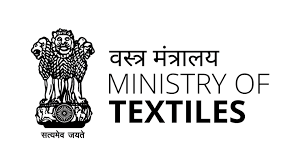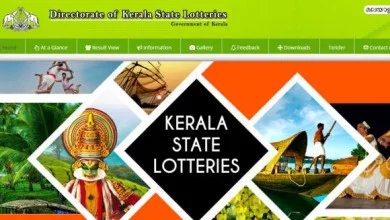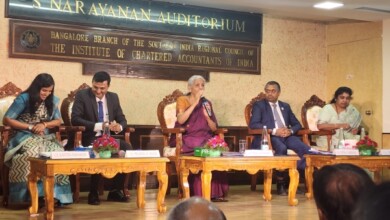Jute Industry

The existing Order under Jute Packaging Materials (JPM) Act, 1987 dated 20th December, 2019 stipulates that 100% of Foodgrains and 20% sugar are required to be packed compulsorily in jute bags. This Order is valid upto 30thSeptember, 2020. As per stipulation of the Order, different state foodgrains procuring agencies including Food Corporation of India (FCI) purchase jute bags to the tune of around 30.0 lakh bales for packing foodgrains. The total purchase currently constitutes about 76.0% of the total production of jute goods and 96% of the total production of sacking by the jute mills.
The shortfall in supply was met by granting relaxation for use of High-density polyethylene or polypropylene (HDPE/PP) bags as per provisions of JPM Act, 1987. The Government also permitted D/o Food and Public Distribution to use used jute bags during Covid-19 situation. In RMS 2020-21, relaxation to the tune of total 7.01 lakh bales were given for use of HDPE/PP bags.
Government is implementing a credit linked Scheme called Amended Technology Upgradation Fund Scheme (ATUFS) for technology upgradation of the textile industry with one time capital subsidy for eligible machinery. Segments which have higher employment and export potential such as Garmenting and Technical Textiles are eligible for capital subsidy at the rate of 15% subject to cap of Rs.30 crore. Segments such as weaving for brand new Shuttle-less Looms (including weaving preparatory and knitting), Processing, Jute, Silk and Handlooms get subsidy at the rate of 10% subject to a cap of Rs. 20 crore.. Year-wise subsidy released to the textile units in weaving and knitting Segment is provided in the table below:
| Subsidy released to weaving and knitting segment under TUFS (in Rs.crore) | ||||||
| Year | ATUFS | RRTUFS | MMS | RTUFS | MTUFS | TOTAL |
| 2016-17 | 0 | 141.6 | 69.26 | 54.18 | 29.77 | 294.81 |
| 2017-18 | 0.35 | 81.19 | 258.54 | 44.54 | 8.38 | 393 |
| 2018-19 | 10.84 | 16.49 | 108.7 | 13.82 | 0.17 | 150.02 |
| 2019-20 | 102.27 | 0 | 39.04 | 0 | 0 | 141.31 |
| 2020-21(as on 14.09.2020) | 42.13 | 0.47 | 4.18 | 0 | 0 | 46.78 |
| Total | 155.59 | 239.75 | 479.72 | 112.54 | 38.32 | 1025.92 |
*RRTUFS- Revised Restructured Technology Upgradation Fund Scheme
*MMS- Margin Money Subsidy
*RTUFS- Restructured Technology Upgradation Fund Scheme
*MTUFS- Modified Technology Upgradation Fund Scheme
The Government is implementing following schemes for development of handlooms and welfare of handloom weavers across the country, and the efforts through the schemes involve revival, reform and restructuring of the sector: –
- National Handloom Development Programme (NHDP)
- Comprehensive Handloom Cluster Development Scheme (CHCDS)
- Handloom Weavers’ Comprehensive Welfare Scheme (HWCWS)
- Yarn Supply Scheme (YSS)
Under the above schemes, financial assistance is provided for raw materials, purchase of looms and accessories, design innovation, product diversification, infrastructure development, skill upgradation, lighting units, marketing of handloom products and loan at concessional rates.
Funds under the above schemes are not allocated/released State-wise. Funds to the eligible handloom agencies are released on the basis of viable proposals received and utilization of previous released funds.
The government has been implementing Improved Cultivation And Retting Exercise (Jute-ICARE) programme for jute agriculture. Among other scientific packages for jute cultivation, supply of certified and high quality jute seeds to the farmers is one of the main activities under the Jute-ICARE programme. The quantities of jute certified seeds (JRO-204 & JBO-2003H variety) supplied to farmers during 2015-16 to 2020-21 is given below:
| 2015-16 | 2016-17 | 2017-18 | 2018-19 | 2019-20 | 2020-21 | 2021-22 (Proposed) |
| 64 MT. | 160 MT. | 500 MT. | 755 MT. | 535 MT. | 610 MT. | 900 MT. |
Recently, Jute Corporation of India (JCI) has signed an MOU with National Seeds Corporation on 19th August, 2020 for commercial distribution of certified jute seeds of quantity of 1000 MT for the crop year 2021-22.
Ministry of Textiles is working with M/o Health and Family Welfare for supply of PPE Body Coveralls and N-95 Masks required for use of Health professionals in Government Hospitals. From zero indigenous manufacturers of PPE Coveralls in the country, over 1100 indigenous manufacturers have been developed with peak production of about 5 lakh PPE Coveralls per day in mid-May, 2020.
This information was given in a written reply by the Union Minister of Textiles Smt. Smriti Zubin Irani in Lok Sabha today.




